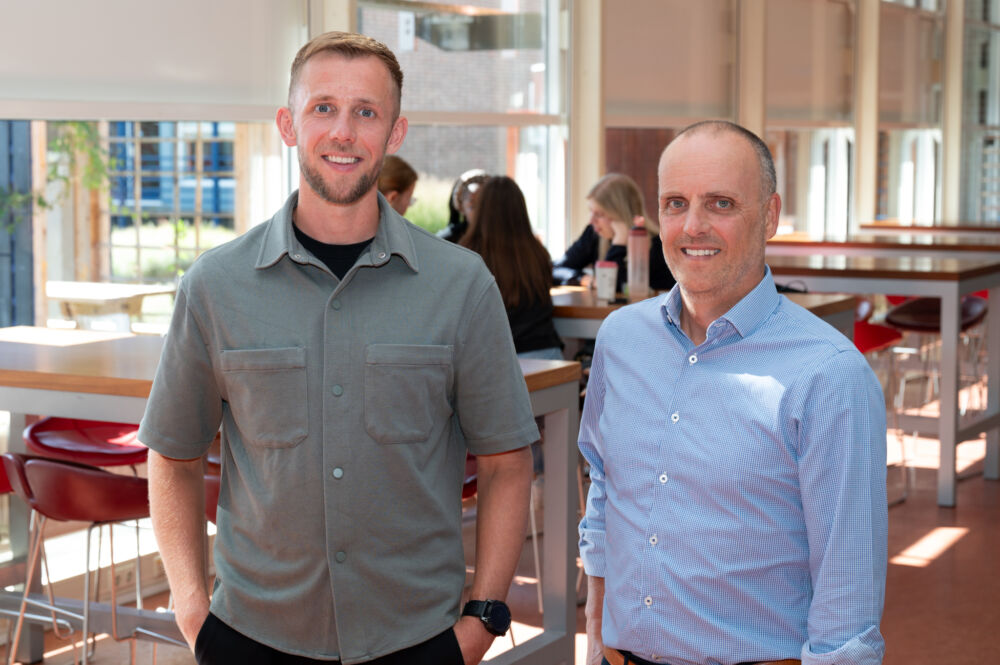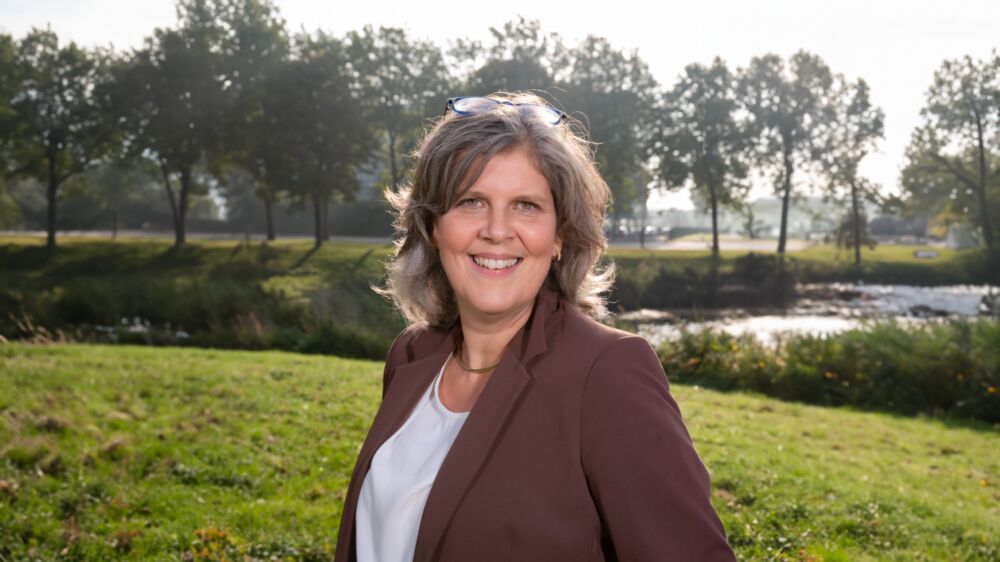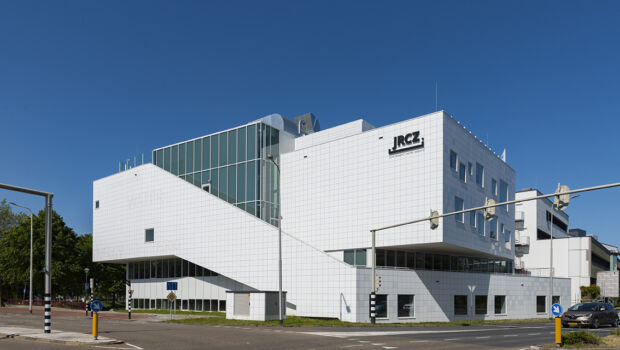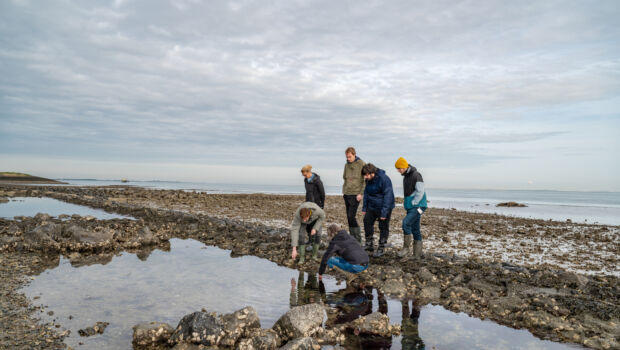As a knowledge institute, the HZ focuses on practice-based education and research. Education and research work together in various ways within the HZ. Researchers from the lectorates and knowledge centers organize guest lectures, minors and electives in the programs. They enrich education with real-life case studies. Students in turn do internships at the lectorates. But there are plans to strengthen the collaboration between research and education even more.
Within the HZ there are 15 lectorates and 3 knowledge centres. A lectorate is headed by a lecturer and has a four-year plan with various research lines. A knowledge center is led by a coordinator and focuses mainly on questions from the professional field. The lectorates and knowledge centres conduct research on the themes of water, energy, vitality and in the field of food and the biobased economy. The research groups are divided into two Applied Research Centres (ARCs), TWE and Vitality. The ARC TWE stands for Technology Water Environment and the ARC Vitality focuses on broad prosperity in the region. The pillars of research and education work together in various ways.
The collaboration between research and education provides a good mix. The lecturers monitor the quality of education and we bring enriching and in-depth knowledge from research.
Researchers from the lectorates give guest lectures in education
One of the ways in which the research groups collaborate with education is by providing guest lectures. “Within research you are always on the border between what we know and what we do not yet know,” says Olaf Timmermans, Healthy Region lecturer and leading lecturer ARC Vitality. “That boundary is constantly shifting and it is precisely that state-of-the-art knowledge that we want to share with students through the curriculum.” Such a guest lecture can be about research methods or more subject-specific. The content of the guest lectures is always coordinated with the lecturer in question, so that the lesson fits in well with the curriculum of the programme. “That provides a good mix,” says Olaf, “because the lecturers monitor the quality of the education and we provide enriching and in-depth knowledge from research.”
For example, researchers from the Healthy Region lectorate give guest lectures on the prevention of health problems to students of the Bachelor’s programme in Nursing (HBO-V). Associate lecturer Tanja Moerdijk from the Marine Biobased Chemistry lectorate gives inspirational lessons to the Bachelor’s programme in Global Project and Change Management. Researchers from the New Business Models lectorate give guest lectures on research methods in the bachelor's program Tourism Management and lessons on measuring impact to students of the part-time Social Work program and fourth-year students of the bachelor's programs Commercial Economics and Business Administration. Guest lectures are also given by the Aquaculture in Delta Areas lectorate in the Global Project and Change Management program.

Students do internships at the lectorates and knowledge centers
Students from the bachelor's programmes can do an internship at various lectorates within the HZ. During this internship, students work on their professional product and gain work experience. "In my opinion, it cannot be the case that there are research activities that no students participate in," says Olaf. In research projects of the Healthy Region lectorate, students take on part of the data collection or conduct qualitative interviews. According to Jasper van Houcke, lector Aquaculture in Delta Areas and leading lector ARC TWE, an internship at a research group is just like an internship at a company. "We really take the students with us," says Jasper. "The students work in the lab, go into the field and work on the experiments that the research groups are currently working on."
Through the real-life case studies, students get to know the professional field better. They get to know the different facets of a case so they can better understand it. We stimulate creativity in finding solutions for the cases.
Research groups enrich education with real-life case studies
Research feeds and enriches education with real-life case studies from the business community. According to Tanja, both students and businesses reap the benefits of this collaboration. “Students get to work on real-life case studies where a research group or company can really benefit from the results,” says Tanja. “That makes the learning process so much more current and tangible. A student then has more drive to get started with the learning material and thus achieves good results.” Ageeth van Maldegem, lecturer in New Business Models, agrees. “The students get to know the field better,” she says. “They get to know the different facets of a case so that they can better understand it. We stimulate creativity in finding solutions for the cases.”
The PhD research of Sybren Slimmen from the Healthy Region lectorate focuses on the influence of interactions in the social environment on the mental well-being of young adults. The research ensures a cross-domain connection between research and education. Insights from the trajectory are shared directly through participation in working groups on student well-being with, among others, the Education, Research and Quality Service (DOOK), deans and student psychologists. This ensures direct implementation of current knowledge. In addition, this line of research creates multiple graduation opportunities for both HBO graduate students and master students from the University of Antwerp, with unique interactions between the university and the university.
Take the ENSURE project of the Healthy Region lectorate, for example. The aim of this project was to tackle the circumstances that make people vulnerable by using a proactive approach and an innovative peer-to-peer method. In collaboration with the municipality of Middelburg, the lectorate carried out a buddy project. In this project, HZ students were linked to Middelburg status holders. Within this project, a model was also developed on the basis of which future peer supporters are trained and guided in that role. This model has been implemented in the Student Success Centre (SSC), in which students (buddies) are trained to support other students with any questions for help and, where necessary, to refer them to the right people.
Another example is the VOLTA project (Food Production at Sea: Towards a Low-Trophic Aquaculture) of the Aquaculture in Delta Areas lectorate. This research focuses on the theme of smart farming (data-driven cultivation). A collaboration with the bachelor's degree programme Water Management is the obvious link. However, in this project, students from the Data Scientist (DS) programme of the IT programme are working on this. These students use their knowledge and skills to analyse smart sensoring and satellite data.
Another example comes from the Marine Biobased Chemistry lectorate. A biopolymer coating for food is being developed within one of the research groups. This edible coating is made from seaweed, but must meet the same functional properties as plastic packaging. The coating must keep cucumbers or apples nice and fresh and crispy. This case was introduced in the Bachelor's degree programme in Circular Chemistry to enrich the regular curriculum on polymers.
Every year, fourth-year students of the Commercial Economics and Business Administration programs participate in the student jury of the Zeeland Innovation Award Emergo. The professional jury, together with the student jury, awards the prize to the Zeeland entrepreneur or Zeeland organization with the most appealing innovation. The students visit the five nominated companies to be able to give their opinion on the assessment criteria. In this way, students come into direct contact with entrepreneurs and see how innovation works in practice. The New Business Models lectorate facilitates this collaboration with the programs together with the Knowledge Center for Entrepreneurship and Innovation (KCOI). Impuls Zeeland also contributes annually by 'challenging' students on their assessment together with KCOI.
Lectorates offer minors and courses
Both the Healthy Region and Marine Biobased Chemistry lectorates offer their own minor. In the Healthy Region Vital Society minor, students learn to apply Design Thinking to social problems. Design Thinking is a step-by-step plan that allows students to look outside the box at complex issues. In the Marine Biobased Chemistry lectorate minor, students are confronted with a research curriculum and an entrepreneurship or innovation curriculum. Within the research curriculum, students learn the skills required for practice-oriented research. Think of formulating research questions and a hypothesis, organizing an experiment, collecting and analyzing data, and reporting on the research. The New Business Models and Aquaculture in Delta Areas lectorates are the main supplier of practical material for a number of electives in the Commercial Economics, Business Administration, and Water Management programs. This is an accessible way to implement research results in education. “From research, we have an expert role in education,” says Ageeth. “That is how we help the students.”
Current social issues can no longer be solved monodisciplinary. Interdisciplinary collaboration is essential.
Strengthening the collaboration: research ambassador
“We are continuously working to strengthen the connection between research and education,” says Olaf. One of the concrete plans that has now been set out within the Health, Education and Wellbeing (HEW) domain is that each education team will receive a research ambassador. The aim of this plan is to make the connection with research even more when designing the curriculum of the bachelor's programmes.

Strengthening the collaboration: interdisciplinary collaboration
“In the coming years, we want to work on interdisciplinary collaboration between different programs and professorships,” says Tanja. A good example of how this ambition is already being applied is the Food Challenge Bus, an initiative where Ageeth and Tanja's professorships come together. Students from the bachelor's programs Chemistry and Global Project and Change Management, and the Associate degree program Food, Business and Innovation (FBI) went on a tour of companies in the province. These companies provide real-life case studies that the students then work on in their program. “Current social issues can no longer be solved monodisciplinary,” says Jasper. “Interdisciplinary collaboration is essential.” At the Aquaculture in Delta Areas professorship, there is a lot of collaboration with, for example, machine builders. Researchers from this professorship mainly look at the biological components of the project, but Jasper thinks that this could also be interesting for students from the bachelor's program Engineering.
As research, we are the link between education and business. By collaborating with education, we remain sharp and maintain that specialist role for both education and the business community.
Collaboration between education and research is essential for HZ as a knowledge institute
To sum everything up: within the HZ, education and research work together in various ways. Researchers give guest lectures at programmes, students can do internships at the research groups, the lectorates and knowledge centres enrich education with real-life case studies and they offer minors and electives. However, there is still room for improvement. For example, there are plans to appoint a research ambassador to strengthen the connection between education and research. There is also the ambition to work together interdisciplinary between different programmes and research groups more often.
Thanks to the collaboration between education and research, students are presented with state-of-the-art knowledge and are introduced to real-life case studies and applied research methods. The collaboration is just as beneficial for research. “As research, we are the link between education and the business community,” says Tanja. “By working together with education, we stay sharp and retain that specialist role for both education and the business community.”


